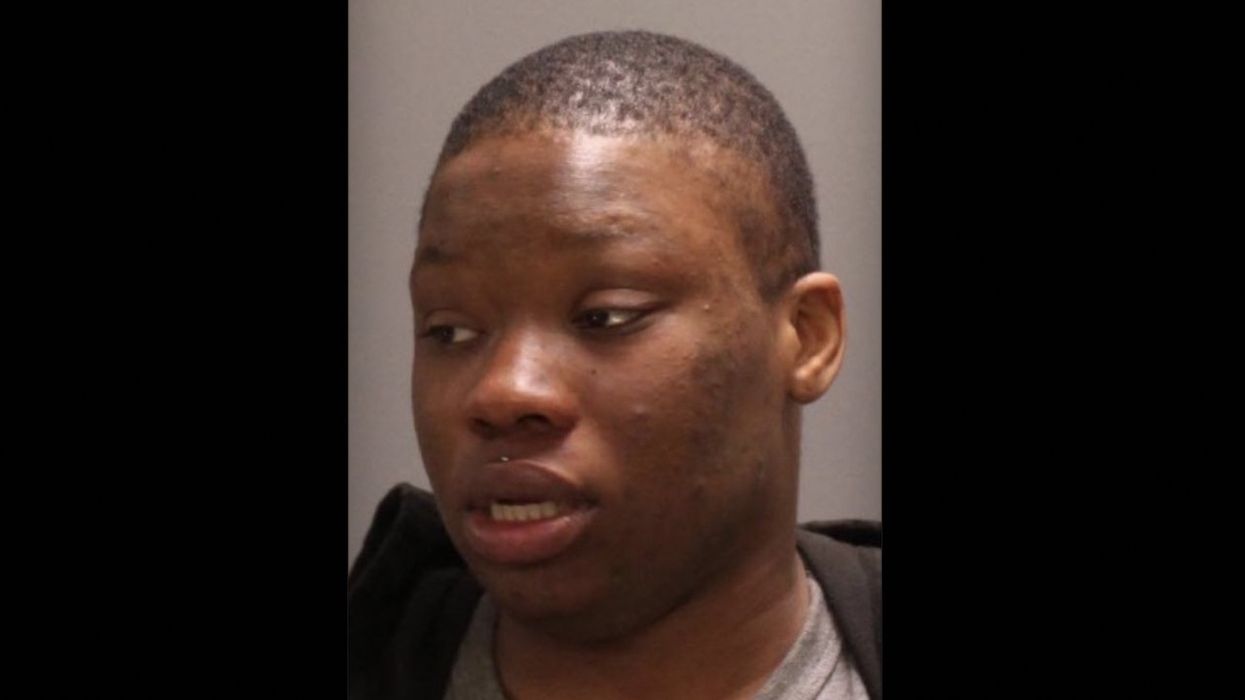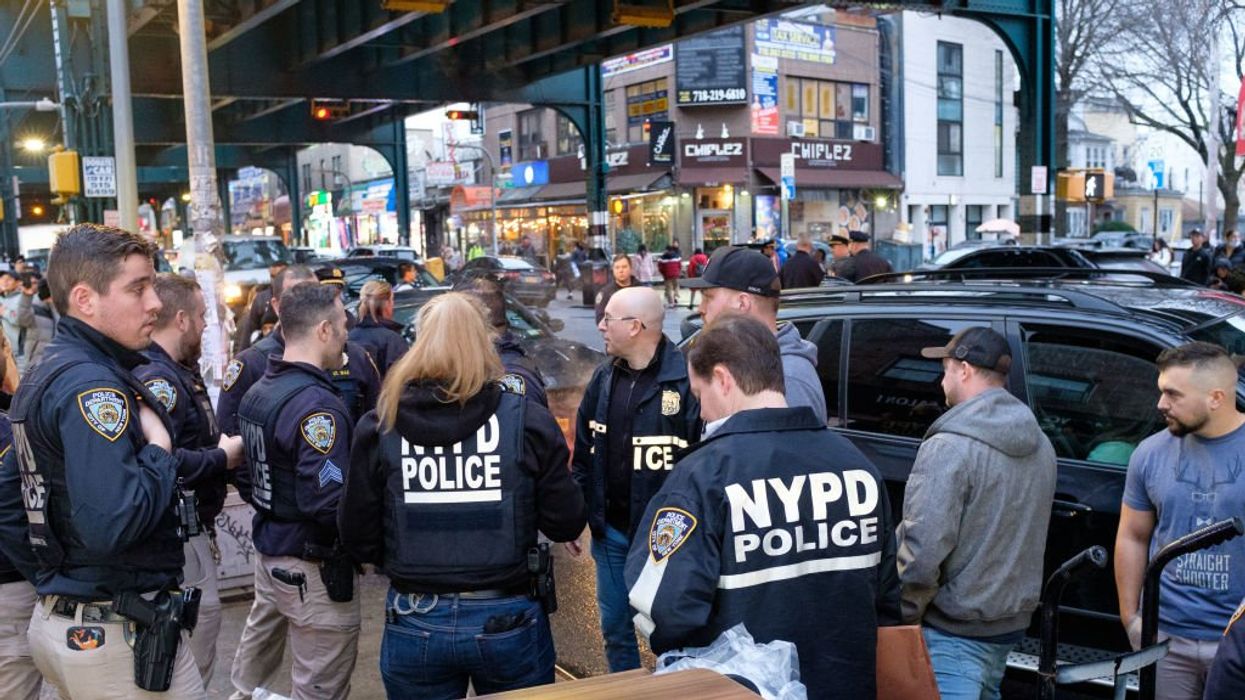
© 2024 Blaze Media LLC. All rights reserved.
Evil triumphed over a good man at My Lai.
Glenn Beck’s new book, “Miracles and Massacres,” is about helping people connect with the true, untold history of America. In Chapter Eleven, Glenn tells the story of the "My Lai Massacre," an atrocity carried out by the U.S. military against Vietnamese civilians, in which one heroic man stood up to his superiors, but could not stop them. What followed was another cover-up.
-
War is hell. And if war is hell, then Vietnam was perhaps war at its most hellish. But one particular episode, the focus of chapter 11 of Glenn Beck’s new book Miracles and Massacres deserves to be remembered, both for the extent of the massacre that occurred and the valor of the man who tried to stop it.
The story of ‘My Lai’ is the story of young men who were forced to engage the Vietcong on their home turf – the most treacherous territory there was. As the tide had turned against the U.S. after the Tet offensive, during which 80,000 Communist troops flooded strategically important areas of South Vietnam, the civilians had turned on the Americans too. No one could be trusted.
 Photo from LIFE Magazine's "The Massacre at Mylai" article. December 5th, 1969. (Image Credit: LIFE Magazine)
Photo from LIFE Magazine's "The Massacre at Mylai" article. December 5th, 1969. (Image Credit: LIFE Magazine)
In a war of attrition, ‘Charlie Company,’ which had consisted of 140 men, began to dwindle, as did their trust of the Vietnamese civilians. The Vietcong was picking off soldiers routinely and the Americans were fighting against guerilla warriors who knew the lay of the land better and had the upper hand.
In mid-March of 1968, all of this came to a head when intelligence reports indicated that a mass of Communist forces were stationed in a nearby village called My Lai. Despite the reconnaissance of pilot Hugh Thomson indicating that in fact there was no enemy in site, contradicting the previous intelligence reports, the soldiers were ordered to attack and destroy everything in site.
[sharequote align="center"]Only Hugh Thompson...would challenge the military leadership and verbalize his disapproval[/sharequote]
When all was said and done innocent and defenseless civilians would be slaughtered at the command of the military hierarchy. Hundreds of Vietnamese would lose their lives. Only Hugh Thompson, the man who had flown the reconnaissance mission, would challenge the military leadership and verbalize his disapproval in an attempt to stop the bloodshed.
The ‘My Lai Massacre’ represented the U.S. at its worst. Its effects were doubly devastating, in that our soldiers not only carried out an atrocity, but also created material for anti-American propaganda to be used against the U.S. and demoralize our troops, helping turn the war against us.
What is moral and just on the battlefield is not always the same as what is moral and just off of it. Survival trumps morality in battle. But in the case of ‘My Lai,’ U.S. troops lined up and made a conscious decision to massacre innocent, unarmed, cooperative civilians. They tossed aside logic and judgment and degraded themselves while tarnishing their nation. They committed acts of unjustifiable and heartless murder, not out of self-defense, but in the perverse comfort of knowing that they were all complicit in the same horrendous acts together.
[sharequote align="center"]To add insult to the injury of the massacre...the government chose to cover-up...[its] actions[/sharequote]
To add insult to the injury of the massacre, as in the case of Wounded Knee and Tokyo Rose, the government chose to cover-up the actions of its men, claiming that twenty civilians were murdered, when the true number was in the hundreds. And the whistleblower, Warrant Officer Hugh Thompson Jr. was railroaded, sent off into a particularly challenging warzone where he was shot down and suffered a broken back. To add insult to Thompson’s literal injury, the government went hardest after him for not participating and actively trying to stop the ‘My Lai’ massacre.
Ultimately, the truth prevailed. Information leaked and, unlike what happened in some of the other whitewashes, the press did an admirable job of seeking out the facts. But under intense political pressure, the courts imposed either nominal or no punishments at all on the worst actors in the massacre. The only hero of the bloody episode would not be recognized as such until three decades later.
To read the full, tragic account of the story of the "My Lai Massacre," along with 11 other epic and untold stories from American history, check out Glenn Beck’s new book, “Miracles and Massacres.” You can find story summaries, excerpts and audio samples by visiting here.
–
TheBlaze contributor channel supports an open discourse on a range of views. The opinions expressed in this channel are solely those of each individual author.
Want to leave a tip?
We answer to you. Help keep our content free of advertisers and big tech censorship by leaving a tip today.
Want to join the conversation?
Already a subscriber?
more stories
Sign up for the Blaze newsletter
By signing up, you agree to our Privacy Policy and Terms of Use, and agree to receive content that may sometimes include advertisements. You may opt out at any time.
© 2024 Blaze Media LLC. All rights reserved.
Get the stories that matter most delivered directly to your inbox.
By signing up, you agree to our Privacy Policy and Terms of Use, and agree to receive content that may sometimes include advertisements. You may opt out at any time.


